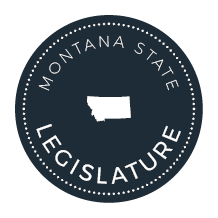Talking Points for HB 2 - REMOVE AMENDMENT HB000202-ACLA567
Update: On Tuesday, April 6, this amendment was removed from HB 2. Thank you for your support!
Amendment HB000202-ACLA567: This amendment provides funding for the regional and CVB portion of the accommodation tax to be placed in House Bill 2 instead of statutorily appropriated in the Department of Commerce Office of Tourism and Business Development Division. A companion bill is made to remove the statutory appropriation. This amendment increases state special revenue by $8,963,263 in FY 2022 and FY 2023.
On March 10, amendment HB000202-ACLA567 was presented and passed to HB 2 moving the regional tourism bureaus and community convention and visitor bureau destination marketing organizations funding from being a statutory appropriation under the Lodging Facility Use Tax to be part of the state General Budget.
- Regional tourism bureaus and convention and visitor bureaus (CVBs) - as also known as destination marketing organizations (DMOs) - are among the most transparent and accountable recipients of the lodging facility use tax.
- Per statute, each funded Montana DMO is an independent nonprofit organization with a board of directors that represents the businesses, organizations and residents from their geographic area they represent. DMOs create demand for the products and services their communities provide through marketing their destination as a travel destination.
- Montana regions and CVB DMOs are locally controlled, and their organizational structures, operations, marketing plans and budgets are controlled by their board of directors first and foremost. Their boards work with staff to craft a strategic plan that helps reach identified objectives under the rules and regulations that are set forth by the Governor’s Tourism Advisory Council (TAC). The Department of Commerce has a program area that works directly with the DMOs to coordinate the technical and legal requirements they must follow according to the yearly contract they have with the state of Montana each year. The TAC reviews and approves their marketing plans and end-of-year project evaluations and the Department of Commerce ensures they fulfill the terms of the contracts. At the end of each budget year, every marketing method is evaluated against measurable metrics to determine return on investment (ROI).
- DMO board meetings, strategic plans, budgets and financials are open to the public. As with any nonprofit organization, they are accountable to the public and thus share information about their organization, operations, financials and the oversight thereof, projects and programs. Larger DMOs also go through an annual independent financial statement audit and biennial internal controls audit. Each DMO has an annual performance audit that is conducted by the Department of Commerce as well as any legislative audits determined by the legislature. Annual compliance audits conducted by Commerce includes and an in-depth review of the books to ensure the lodging tax dollars spent are done so responsibly and according to the law - TAC Rules and Regulations are law under Montana Administrative Rule.
- Not only are region and CVB DMOs accountable to their boards, communities and the state of Montana, they are fully transparent with our updated marketing plans and performance evaluations being posted on the Department of Commerce’s MarketMT.com website for all to see. Three years of marketing plans and project evaluations are always viewable.
- DMOs take the responsibility of using statutory appropriations seriously. Under the current funding structure, DMOs are better able to be responsible to their communities they represent. They can be nimble and responsive to changing conditions and competition within the destination marketing world which is one of the most competitive markets in the world.
- This amendment would greatly limit local entities short- and longer-term ability to driving economic and community development through the tourism economy.
- Governor Gianforte is an advocate of tourism and for local control of their promotion efforts. According to his Comeback Plan, travel and hospitality industries recover through effective promotion which is what regions and CVBs provide. Recovery is achieved through focusing on the fundamentals that created success. There can be many places for improvement and change but losing control of funding is dangerous and could put communities on a longer road to recovery. Local DMO boards determine what is best for their community. Regions and CVBs are the locals who control these dollars.
- This amendment is trying to achieve something that is already being done. These organizations are not part of the Department of Commerce, they are private partners that work together with them to drive their community’s economy. They are accountable for every dollar and show measurable return on investment for them. They welcome the public to their meetings and are open to talking with all about who they are, what they do, how they do it and why.
- COVID-19 has impacted Montana's communities dramatically. Making a major change like this during one of most dire tourism economic downturns we have seen would be add fuel to a fire that is already far from out.
- Please remove Amendment HB000202-ACLA567 from HB2. It does not achieve what one would think it would. It is redundant and puts local destination marketing organizations at a disadvantage.
